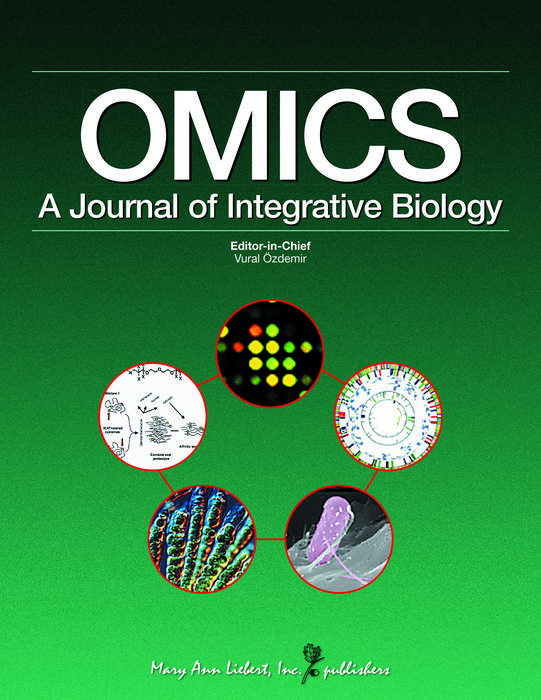A groundbreaking research article has emerged from the realm of nanoparticle technology, specifically focusing on core-shell nanoparticles and their transformative potential in the arena of drug delivery systems. As the landscape of medicine is continually evolving, the intersection of nanotechnology with personalized and precision medicine has captured the imagination of researchers and medical practitioners alike. This innovative analysis, published in the esteemed journal “OMICS: A Journal of Integrative Biology,” delves into the multifaceted advantages that core-shell nanoparticles offer, setting a new benchmark for future therapeutic strategies.
Core-shell nanoparticles are engineered structures with two distinct layers: a core that encapsulates drugs and a shell that serves various functional purposes, including protecting drugs from degradation. This intricate design is pivotal for ensuring that therapeutics remain stable until they reach their desired target. By leveraging the unique properties of materials—ranging from polymers and lipids to inorganic compounds—researchers can tailor these nanoparticles for optimal drug loading and distribution, addressing the specific needs of diverse therapeutic interventions.
One of the paramount benefits of core-shell nanoparticles lies in their capability for controlled drug release. This mechanism not only enhances the efficacy of the treatment but also significantly minimizes adverse effects, rendering it an attractive alternative to traditional drug delivery methods. Enhanced bioavailability and targeted action are essential components of personalized medicine, where treatments are customized based on individual patient profiles. This targeted approach embodies the future of medicine, complementing advancements in genomics and biotechnology that aim to provide precision healthcare solutions.
The study conducted by Suren A. Ramadhan and Diyar S. Ali representatives from Knowledge University and Salahaddin University in Iraq sheds light on several avenues through which core-shell nanoparticles can be utilized effectively. For instance, the ability of these nanoparticles to encapsulate a wide range of therapeutic agents—including chemotherapeutics, biologics, and vaccines—opens up possibilities for developing multifaceted treatment regimens. Moreover, as the healthcare community strives to improve patient outcomes, the role of customized drug delivery systems becomes undeniably significant.
Equipped with the capacity to shield drugs from premature degradation, core-shell nanoparticles foster controlled drug release, enabling the sustained delivery of therapeutics over extended periods. This sustained mechanism is especially crucial for conditions that require chronic treatment, allowing for consistent therapeutic levels while mitigating fluctuations in drug concentration that are common with conventional delivery methods. As such, patients can experience improved treatment outcomes, ultimately leading to a better quality of life.
Current research highlights diverse applications of core-shell nanoparticles in oncology, where they have shown promise in enhancing the effectiveness of chemotherapeutic agents while concurrently reducing their toxic side effects. By utilizing these advanced nanocarriers, clinicians can potentially increase drug efficacy while sparing healthy tissues, a significant advancement in cancer treatment paradigms. This integration of nanotechnology within oncology also points to a future where combination therapies, conducted simultaneously, can be more efficient and targeted.
The development of core-shell nanoparticles also raises questions related to material safety, biocompatibility, and potential toxicity. Researchers are dedicated to addressing these concerns to improve the overall efficacy and safety profile of these nanoparticle systems. This comprehensive investigation enables teams to devise innovative materials that not only deliver drugs effectively but also conform to stringent safety standards. Businesses and research institutions are actively collaborating to generate comparative studies assessing the performance of various core-shell configurations, thereby refining the design process.
As scientists and researchers delve deeper into the potential of nanoparticles, advancements in synthesis techniques promise to yield more sophisticated structures with improved functionalities. Novel approaches, including the use of smart materials responsive to specific triggers—such as pH changes or specific enzymes—can facilitate the design of more intelligent drug delivery systems. This capability could potentially diminish the risk of systemic toxicity while enhancing the therapeutic outcomes for patients who require complex drug regimens.
In conclusion, the meticulous exploration of core-shell nanoparticles is set to redefine therapeutic paradigms in personalized and precision medicine. Their ability to provide targeted, controlled, and sustained drug release represents a paradigm shift that holds the possibility of revolutionizing the way we approach various medical conditions. Such innovations highlight the confluence of nanotechnology and medicine, illustrating a promising trajectory toward more refined healthcare solutions that prioritize patient outcomes. The research community’s dedication to unraveling the complexities of these systems paves the way for groundbreaking advancements that could enhance treatment accessibility, efficacy, and safety.
As we venture forward, the publication of pivotal studies in respected journals is essential to communicate these findings and foster collaborative efforts across the scientific community. The journey of core-shell nanoparticle research exemplifies the innovative spirit that drives science toward a future where healthcare is more personalized, effective, and holistic than ever before.
Subject of Research: Not applicable
Article Title: Innovations in Core–Shell Nanoparticles: Advancing Drug Delivery Solutions and Precision Medicine
News Publication Date: Not applicable
Web References: Not applicable
References: Not applicable
Image Credits: Mary Ann Liebert, Inc.
Tags: advancements in drug encapsulationcontrolled drug release mechanismscore-shell nanoparticlesdrug delivery systemsmultifunctional nanoparticle designnanoparticle technology breakthroughsnanotechnology in healthcarepersonalized therapeutic strategiesprecision medicine innovationsreducing adverse drug effectsstability of drug formulationstherapeutic interventions using nanoparticles





